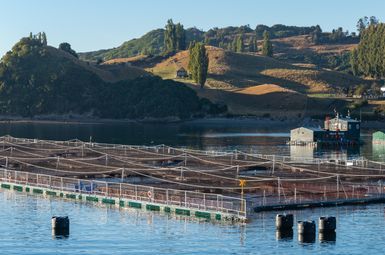
Humanity can farm more food from the seas to help feed the planet while shrinking mariculture’s negative impacts on biodiversity, according to new research led by the University of Michigan.

As technologies improve, so too do opportunities for businesses to lead in environmental stewardship. University of Michigan faculty and staff are highlighting cutting edge environmental, social, and governance (ESG) strategies and assessing the future of the green economy. The Erb Institute is at the center of this thought leadership, enabling companies, industries, and entire economies toward systemic sustainability.

Humanity can farm more food from the seas to help feed the planet while shrinking mariculture’s negative impacts on biodiversity, according to new research led by the University of Michigan.
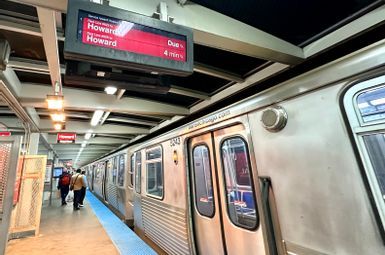
Research led by the University of Michigan arrived at a surprisingly unsurprising result while assessing the sustainability gap between public transit and services like Uber and Lyft.
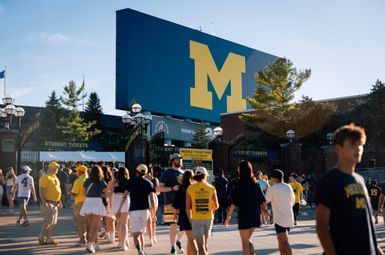
According to a new report from the Center for Sustainable Systems, the Big Ten’s 2024 expansion will more than double the average conference game emissions for the University of Michigan football team.
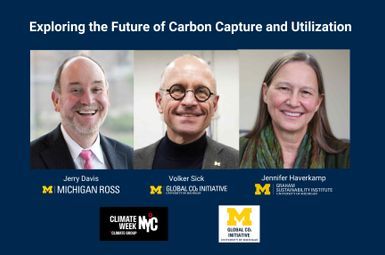
Carbon-based products are central to our economy, yet urgent action is needed to combat climate change. As part of Climate Week NYC, the Global CO2 Initiative held a discussion how carbon capture and utilization can mitigate the negative impacts of fossil fuel use, addressing the technology’s economic and social impacts, as well as its challenges.
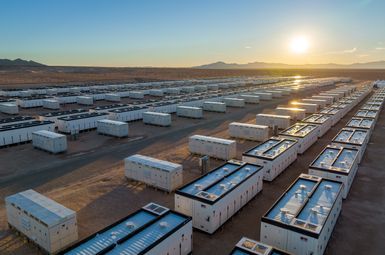
U-M has published a guidebook to help communities navigate the arrival of new battery energy storage systems amid changing energy policies.
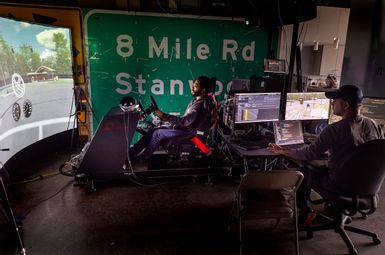
As Mcity begins welcoming researchers in autonomous and connected vehicle technologies from around the U.S. to be remote users of its physical and virtual testing environment, its leadership is calling for federal standards for safety testing, arguing that the lack of clear goalposts is hampering development.

"Any product that undergoes significant processing is going to have some carbon footprint, and maple syrup is no different. However, maple farmers get to tell a different story because they are the stewards of a resource that they tap into year after year."
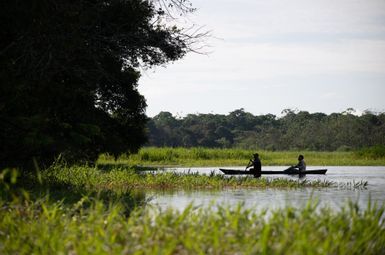
Hundreds of terrestrial and aquatic animal species live in the Boca do Mamirauá Reserve, located in the upper reaches of the Amazon, at the confluence of the Solimões and Japurá rivers. It is the first destination of the U-M Pantanal Partnership students this year.
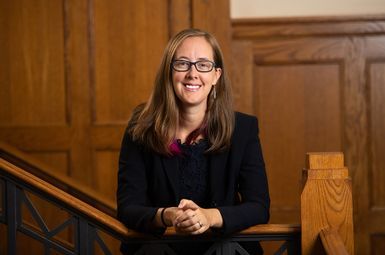
The United States’ struggle to build electricity transmission capacity connecting low-cost producers has environmental and economic consequences for energy companies.
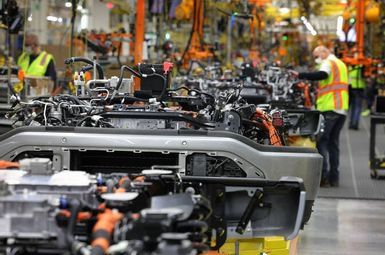
U.S. auto plants producing battery electric vehicles have required a larger workforce than traditional internal combustion engine plants—a finding that runs counter to early predictions about how EVs would impact the industry.
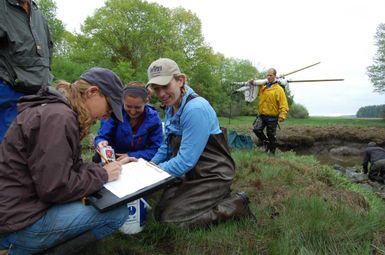
U-M has received a $25 million grant from the National Oceanic and Atmospheric Administration to support collaborative research initiatives addressing critical environmental challenges in U.S. coastal communities.
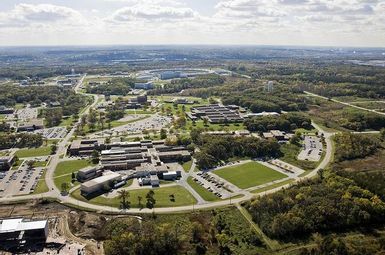
Maximizing the benefits of clean energy requires new ways to store it, and U-M engineers will partner in a new research hub created by the U.S Department of Energy (DOE), designed to develop and further battery innovations.
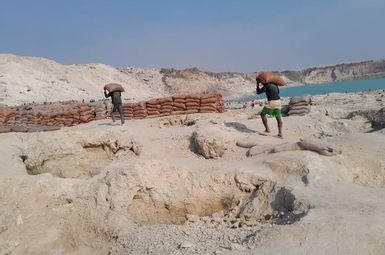
Artisanal and small-scale mining plays a critical role in supplying the world with minerals vital for decarbonization, but this kind of mining typically lacks regulation and can be socially and environmentally harmful.

For carbon capture and utilization (CCU), public support depends on which aspect of the technology is being considered and which people are considering it, according to a new study conducted by researchers from University of Michigan and other institutions.
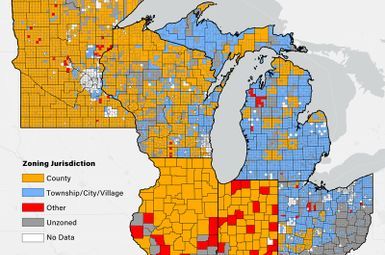
The Center for EmPowering Communities, with funding from the U.S. Department of Energy Solar Energy Technologies Office and the Michigan Department for Environment, Great Lakes, and Energy, has expanded its pioneering renewable energy zoning database to detail solar zoning regulations across the Great Lakes region.

Each year, hundreds of thousands of Michigan parents worry whether they can afford to feed their children. Increased food prices, the state’s housing crisis, and the end of COVID-era financial support have all led to more Michigan families experiencing food insecurity today than before the pandemic.
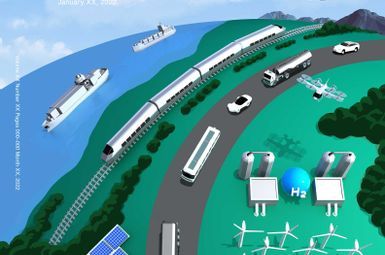
Green hydrogen is emerging as an important potential solution for decarbonizing transportation, but new energy efficiency findings indicate that it should be used strategically in heavy-duty road, rail, aviation and marine transportation, a U-M study shows.
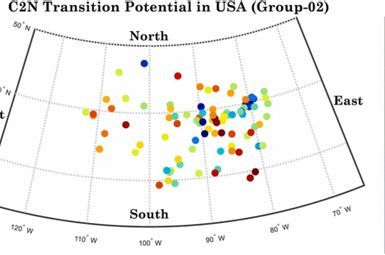
An assessment ranks the feasibility of converting 245 operational coal power plants in the U.S. into advanced nuclear reactors, providing valuable insights for policymakers and utilities to meet decarbonization goals, according to a new study by University of Michigan researchers.

Improving electric motor efficiency, reducing costs and ultimately making them without heavy rare-earth elements are the goals of a new $2.6 million project led by U-M.

Converting home heating systems from natural gas furnaces to electric heat pumps is seen as a way to address climate change by reducing greenhouse gas emissions. But a new U-M study of 51 Southeast Michigan households shows that switching to efficient, cold-climate heat pumps would increase annual utility bills by an average of about $1,100.
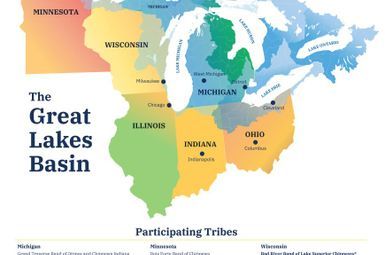
“Given that we sit in the heart of the Great Lakes and 21% of the world’s fresh surface water, we wanted to explore the region’s plans to identify the highest-impact, most innovative and scalable multi-state opportunities. We looked for what was working, to inform ways to accelerate community-based climate action."

Copper cannot be mined quickly enough to keep up with current U.S. policy guidelines to transition the country’s electricity and vehicle infrastructure to renewable energy, according to a U-M study.

The new projects include “Plast-ick,” which leverages AI and satellite data to predict pollutants like PFAS in water bodies; “Catching the Waves,” which focuses on deploying wave energy converters to power remote coastal communities; and "Mussel Roads," which uses biomimicry to enhance asphalt durability by developing materials inspired by mussel-binding proteins.
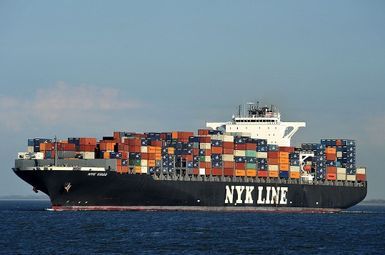
In a new effort to support decarbonizing the maritime shipping industry, U-M has entered into a strategic partnership with the Copenhagen-based Mærsk Mc-Kinney Møller Center for Zero Carbon Shipping.
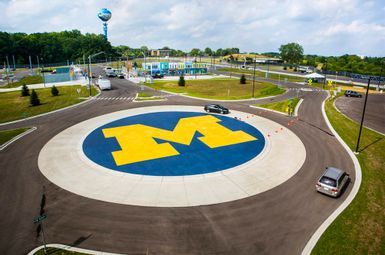
The Mcity AV Challenge will pit researchers in academia and industry against each other, measuring the performance of their decision-making modules in a world-leading, realistic simulated environment.

For long-haul routes below 300 miles, electrification can reduce air pollution and greenhouse gas damages by 13%, or $587 million annually, according to the study. For long-haul routes above 300 miles, electrification of just the urban segments facilitated by hub-based automation of highway driving can reduce damages by 35%, or $220 million annually.
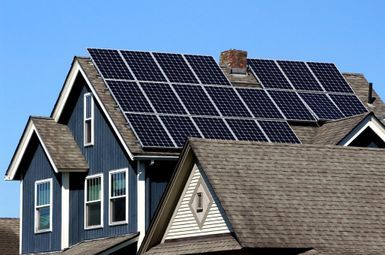
Climate change will increase the future value of residential rooftop solar panels across the United States by up to 19% by the end of the century, according to a new U-M-led study.
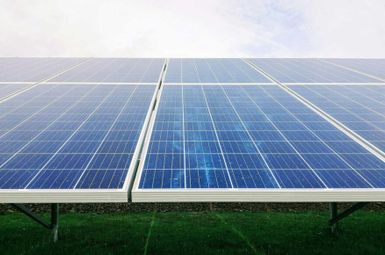
Among residents living within 3 miles of large-scale solar energy developments, positive attitudes about the projects outnumbered negative attitudes by a nearly 3-to-1 margin, according to a new survey of nearly 1,000 large-scale solar neighbors across the United States.
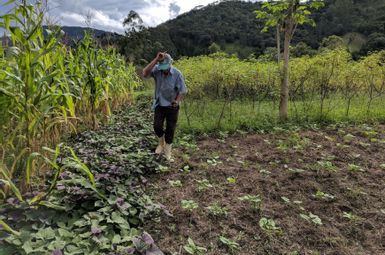
A new study published online April 4 in the journal Science finds that agricultural diversification comes with significant benefits, and very few negative effects.

In the fall of 1881, with the opening of the School of Political Science, Professor Volney M. Spalding began teaching what was considered the first forestry course in the United States.

“I think we’ve become more and more aware of that as a problem, and it’s tearing down Americans’ trust of their own country and their government, because they feel like the game is rigged. And if we want to try to restore some trust in the system, we need to unrig it."

What materials and methods will allow us to design and construct low-carbon buildings? How can architects and designers promote social justice through community ownership of land? Through its Pressing Matters grant program, Taubman College has funded five faculty-led research and creative practice projects that address these questions.

Melinda Su-En Lee, PharmD’21, co-founded Parcel Health in 2019, while studying at the University of Michigan College of Pharmacy. The company aims to solve the waste problem caused by traditional plastic prescription bottles.

Improving the U.S. electricity grid is necessary to lower costs, boost reliability and help tackle climate change, but it will take some serious soul searching by the leaders of entities that control the grid.
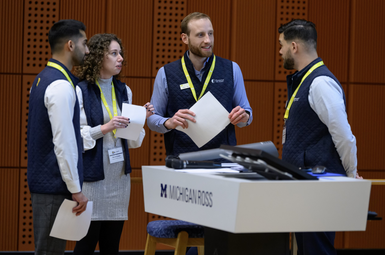
The ClimateCAP MBA Summit, a conference that aims to prepare future business leaders on how to understand and respond to the climate crisis, was hosted at U-M this year.

Six new research projects will investigate the shifting dynamics of harmful algal blooms, economic trends in coastal communities, emerging fish viruses, and other issues relevant to the Great Lakes.
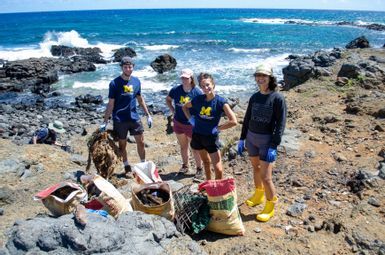
Spearheaded by SEAS PhD candidate Malu Castro, whose family is from Moloka‘i, the work of the first project supports one of the largest Land Back efforts in the modern era of the movement, and the second contributes to fostering and maintaining the longstanding tradition of subsistence agricultural production and other efforts to promote food sovereignty on the island.

Alexa White studies sustainable agriculture in connection with a broader focus on environmental justice. What sustainable agriculture means to people from different parts of the world—and from different socioeconomic strata—is the focus of her dissertation work as a Ph.D. candidate in ecology and evolutionary biology. What environmental justice means to her is, “the right and autonomy for individuals to have access to fresh food, water, and basic human resources without being disenfranchised or oppressed.”
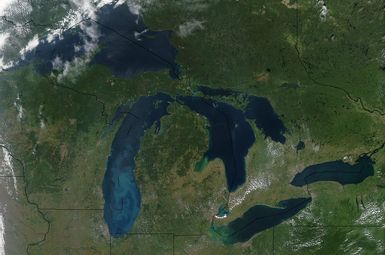
U-M is a partner in the Great Lakes Water Innovation Engine, one of ten regional hubs the National Science Foundation announced this week as part of a program that’s among the largest broad investments in place-based research and development in the nation’s history, according to NSF.
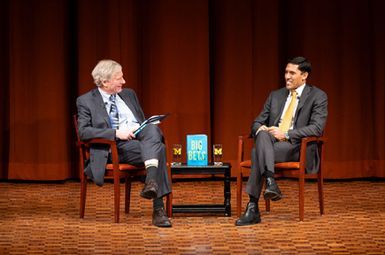
“Often we look at climate change or widespread human poverty or these deep inequities that hold so many communities back generation after generation, and we say to ourselves, these challenges are too complex. I’m just one person; what can I do to really make a difference?”
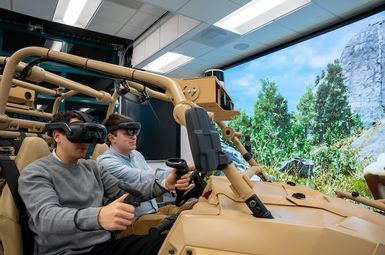
“We are driving the development of modern mobility systems with our advanced modeling and simulation methods, such as high-fidelity synthetic environments, virtual vehicle prototypes and virtual reality tools for human-autonomy teaming."
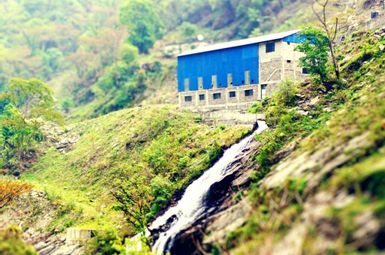
Four newly awarded sustainability “catalyst grants” at U-M are piloting innovative ways to bolster climate resilience and sustainability. Funded by the U-M Graham Sustainability Institute, these projects will explore renewable energy deployment in Nepal, climate justice in the Midwest, textile recycling innovation and equitable transportation planning.
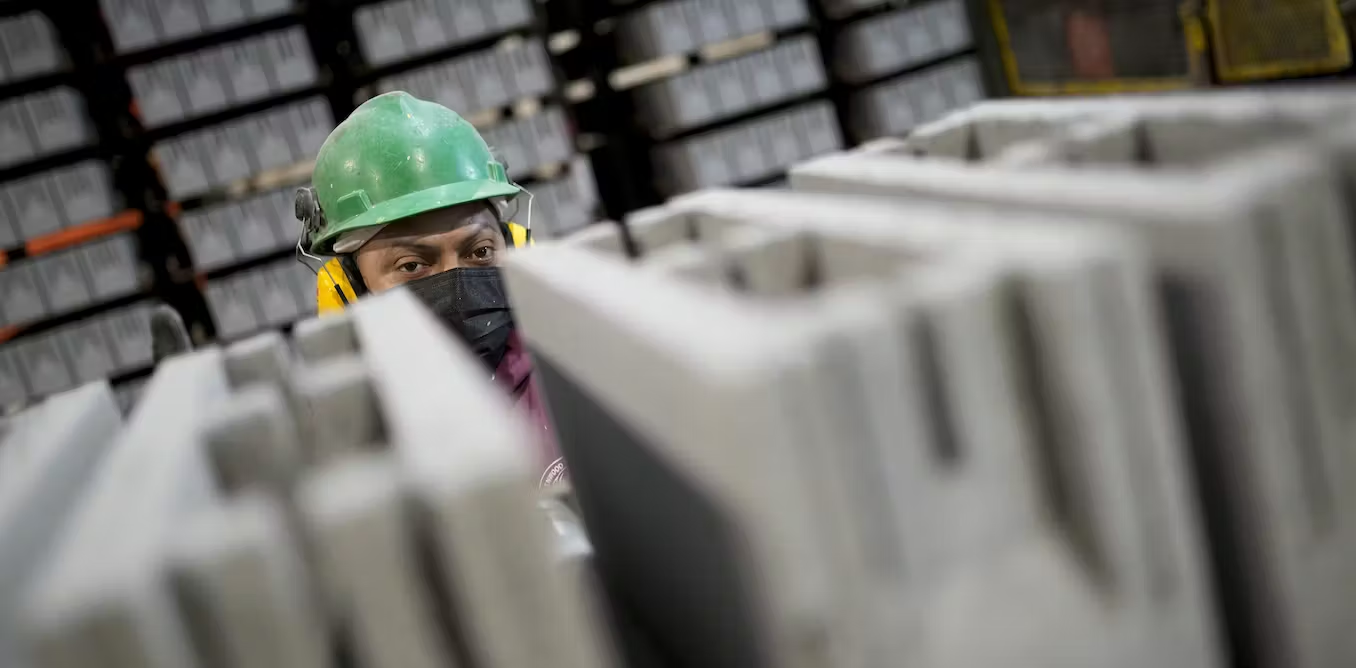
Capturing carbon dioxide from the air or industries and recycling it can sound like a win-win climate solution. The greenhouse gas stays out of the atmosphere where it can warm the planet, and it avoids the use of more fossil fuels. But not all carbon-capture projects offer the same economic and environmental benefits. In fact, some can actually worsen climate change.
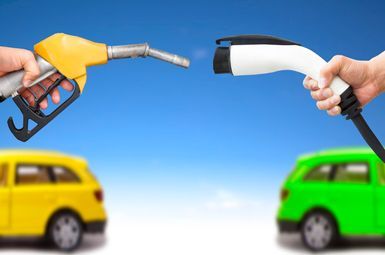
Is it actually cheaper to own an electric vehicle instead of a gas vehicle? It depends. U-M researchers say that where you live matters. For instance, a midsize SUV costs more to own in Detroit than in San Francisco—one of the most expensive cities in the country.
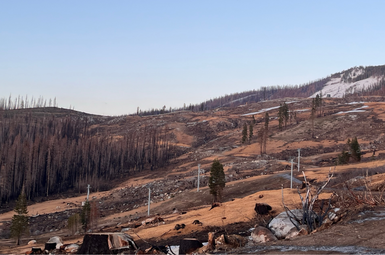
Rackham student and sociologist Joyce Ho’s research seeks to understand homeowners’ experiences and insurance companies’ responses in the aftermath of forest fires in northern California.